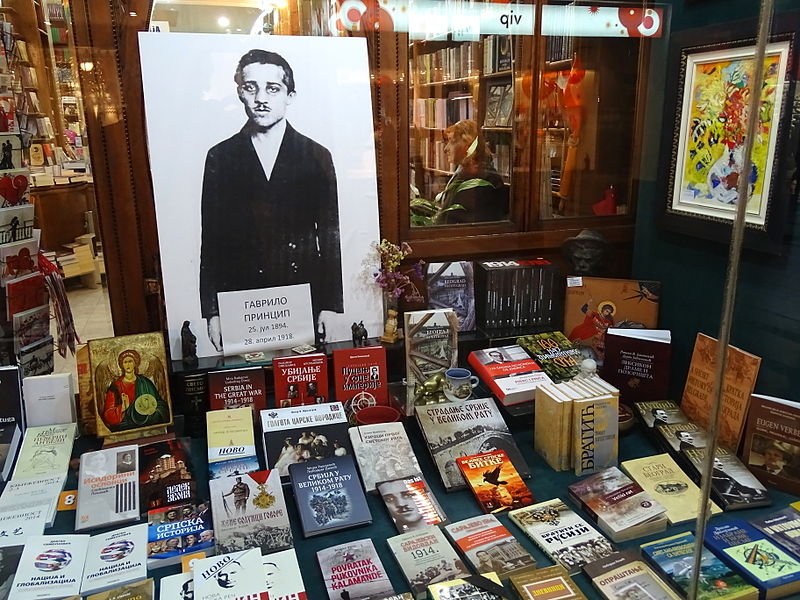 I’ll begin this post with a boldfaced claim: the writing of a popular history is one of the most civic-minded activities a historian can undertake, if done well.
I’ll begin this post with a boldfaced claim: the writing of a popular history is one of the most civic-minded activities a historian can undertake, if done well.
Broadly, books on history are usually classified into two categories: popular, written for a more general audience, and academic, with a more technical and instructional intent behind them. Labeling a book as “popular history” and thus not academic, however, may come with the stigma that such texts are lesser than academic work: meant for a more general audience, it cannot stand up to the intellectual standards of academia. On the other hand, an academic text frequently bears the burden of apparent inaccessibility, doomed to only being read by students and scholars as the rest of society remains unknowing of its very existence.
In my personal experience, this distinction seems to be accepted among students of history, which I have long found problematic. The accessibility of information by a population at large, as well as a high standard of quality for said information are, to me, the two most critical parts of scholarship. The necessity of high quality speaks for itself: bad history stops being history and becomes nonsensical invention and story, which while potentially entertaining (though more often nefarious or foolish) erodes the standards of truth which is already in enough danger these days. Accessibility, meanwhile, ensures that these high standards of truth and fact remain valued by the population: there is a great danger in a body of knowledge seeming to be concentrated or understood by an elite group of individuals. Clearly, an expert will possess more knowledge than a layman, but a layman is still able to dream of becoming an expert, or at least understanding some of what they know. Furthermore, history is fundamentally a subject which affects everyone: is it, at its most basic, the story of the entire society in which we all live. For this reason, if none other, everyone deserves access to good history. For these reasons, the idea that historical texts are intrinsically strong on one of those counts and weak on the other does not sit well with me.
The distinction between the audiences for consumers of history, however, does justify the distinction between academic and public history to a certain degree. Expert historians, whose work attempts to break new ground and re-examine historical knowledge from different angles and viewpoints, will naturally be highly interested in the methodology and academic trends which their fellows used to arrive at their conclusions, and focus much of their writing on such. Novices or casual students, however, are likely to be more interested in the historical narrative: the facts of history, rather than how it was produced. To me, neither of these goals is higher than the other. Understanding historical theory and process is necessary to continue to produce high quality material, though these texts frequently operate on the assumption that their reader has a certain degree of familiarity with the historical backstory relevant to their material. This historical backstory must be taught somewhere, however, and frequently that is in popular history texts.
Imagine, for instance, if students arrived at college having never read a single popular history text in their life. It seems likely that they’ve never read an academic text either, for the reason outlined: how and why would you jump into advanced reading without an understanding of the basics? Would such students care about history or historical analysis? Why should they, if they’ve never been exposed to historical writing of any kind? It is easy to dismiss popular history as a genre for not placing enough emphasis on the standards and processes favored by academic history, but such an argument assumes that the purpose of both types of text is the same. I argue that they are not: reading popular history is an essential part for the development of any historian, because it creates interest. Behind all higher goals that historians and students of history develop along their careers, they study history because, at a very basic level, they are interested in it: studying the historical narrative in some way gives them enjoyment and sparks curiosity.
On the one hand, this seems to be an incredibly obvious argument to make, but on the other, I sometimes feel as though this is forgotten in higher academia. Ideals such as truth-telling, helping give voice to those whose voices have since gone unheard, and expanding the body of human knowledge about ourselves are incredibly noble, but I cannot imagine a historian who would seek to do these things, working with the material that they do, if they are not interested in doing so. And so a fundamental part of creating a historian of any age or background who strives for these higher ideals and building their interest in the body of history: enthralling them with good, well-written narratives that maintain a high standard of truth, and spark a desire to learn more. For if, from the get-go, history seems unapproachable and arcane, why would one wish to partake in it?
All of this is why, to me, popular history is so important: it is, in effect, the gateway to scholarship. For this reason, however, I think popular historians must hold themselves to the highest standards of truth and scholarship, even while maintaining the readability and accessibility which define their genre. This may be a Herculean task as, plainly, it does take a deep and concerted effort to write well—not all historians are capable of it. But for future generations of historians, books on popular history are how their education frequently begins, even before formal schooling, and it is frequently how it will continue in their free time, expanding their interests and serving as a model for work which they may one day do. Hopefully, that work will be great.

4 replies on “Pillars of History: Making History Popular”
Very nicely written.
Great article! I agree, popular historians (for better or worse) are often responsible for the general public’s perception of history in a big way. “Bad history”, as you put it, is especially damaging when propagated freely among ‘the masses’ as fact. Not to say that people are so stupid as to swallow any shiny ‘fact’ that comes their way, but an idea, once firmly entrenched in the popular mind, is not easily disproved regardless of any glaring inaccuracies. I have real beef with Erik Larson’s “Devil in the White City” for this reason; it’s billed as ‘non-fiction’, and is admittedly an account of true historic events, but Larson inserts his own bias and thoughts so often throughout the narrative that to me it seems much more like a story. Diana Gabaldon’s “Outlander” series reads as more historically accurate than “Devil in the White City” in my honest opinion, but that’s my bias.
I would be interested to know what you (and other contributors) think of series like “Drunk History” that make attempts to present accurate history in a way that the ‘common man’ would find accessible.
Thank you for leaving a comment, Riley! I feel the same way about Erik Larson’s books. Drunk History could definitely be an interesting series for us to examine. Something to consider as we go forward…
“History is written by the victors” – Winston Churchill